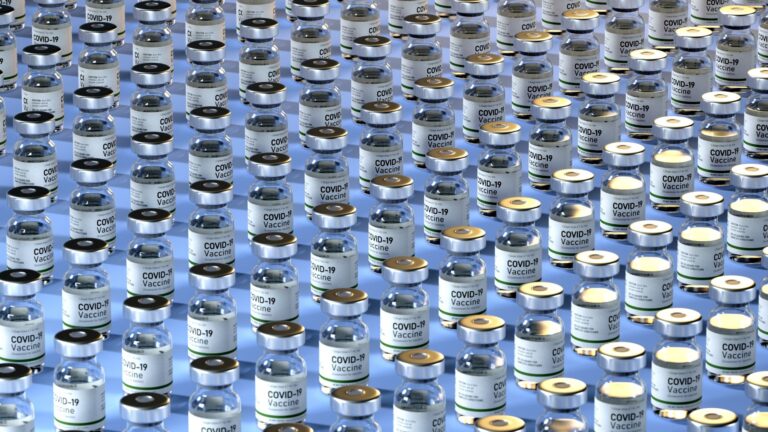
Eleven myths about the COVID-19 vaccine
Avoid fake news and find out why we need to get vaccinated.
Discover the advice of specialists to minimize the risk of infection when grocery shopping.
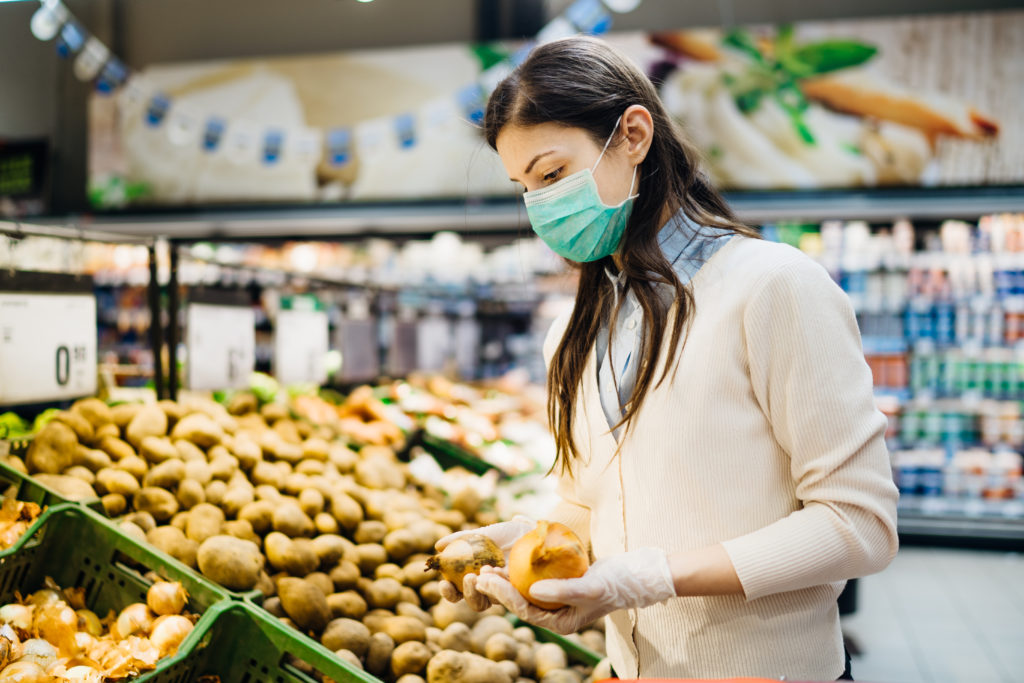
Coronavirus has complicated all of our lives, including simple things like grocery shopping. Some of you may be confused or misinformed about what to do when you shop for groceries. Do you need to wear a mask? Do you need to sanitize everything that you buy?
Here’s what the experts have to say about protecting yourself while grocery shopping.
When Shopping in the Store
For many of us, grocery delivery is not an option. We have to go to the store to get what we need. Yes, there’s a risk of exposure, but you can take steps to protect yourself.
Keep Your Distance
The best thing you can do is keep your distance from other shoppers. Do your best to stay at least six feet away from other people. Lots of stores now have one-way aisles, so that makes it easier to practice social distancing.
If your local store has rules like this, make sure that you follow them to protect yourself and others.
Shop at Less Busy Times
It’s easier to keep your distance if you shop when stores are less busy. Fewer people mean a lower risk of exposure.
If you’re not sure when to shop, Google can help. Just search for the store’s name. A little box should pop up that shows you the store’s busiest hours.
Usually, stores are less busy early in the morning or just before closing. Some stores have designated shopping hours for seniors and other high-risk people. Unless you fit into this category, you will need to avoid shopping at that time.
Cover Your Face
Experts recommend covering your face with a bandana, cloth mask, or some other type of mask when shopping. Masks have been shown to help slow the spread, but you will still need to wash your hands frequently and practice social distancing.
Here are a few tips for wearing a cloth mask:
If you’re using a cloth mask, make sure that you wash it regularly either by hand or in the washing machine.
Bring Hand Sanitizer
If you can get your hands on a bottle of hand sanitizer, bring it with you to the store. Use it to wipe down the cart handles and your hands before and after you shop.
Some stores have free sanitizing wipe stations. Use them if you can.
When Picking Up Groceries
Many stores now offer grocery pickup. You shop online or through an app, someone does all of the shopping for you, and an employee puts your groceries in the trunk of your car. You never have to step foot in a store.
You have to pay for this service (usually no more than $4-$5), but if you’re a high-risk person, it may be worth the extra cost.
Once You Get Home
There are no known transmission cases from food, but it doesn’t hurt to take extra precautions after you get home.
Wipe Down Nonporous Containers
Use disinfecting wipes to sanitize any nonporous containers, like glass or plastic.
Wash Fruits and Vegetables
Rinse and rub fruits and vegetables under clean, warm water. Scrub any produce with hard skins to really get it clean. Beyond COVID-19, it is always important that these foods are clean before storing them.
Wash Your Hands and All Surfaces
When you’re done sanitizing and putting away your groceries, wash your hands and disinfect any surfaces you touched.
You can also find more trusted local services in your community at www.boyleheighstresources.org or download the Boyle Heights Resources app.

Avoid fake news and find out why we need to get vaccinated.
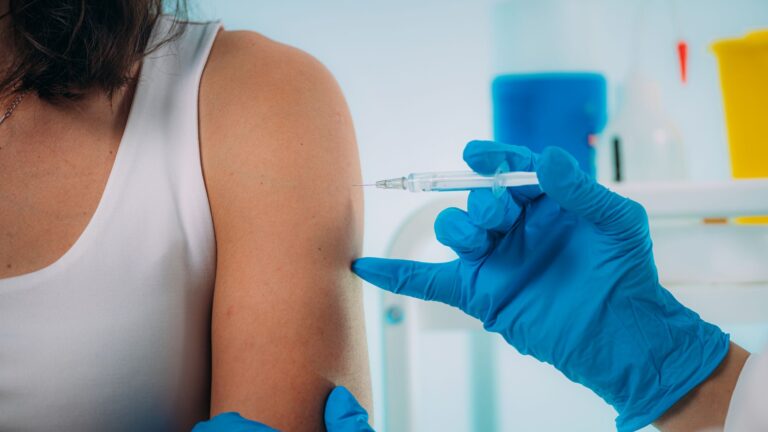
Get your appointment online and receive both doses.
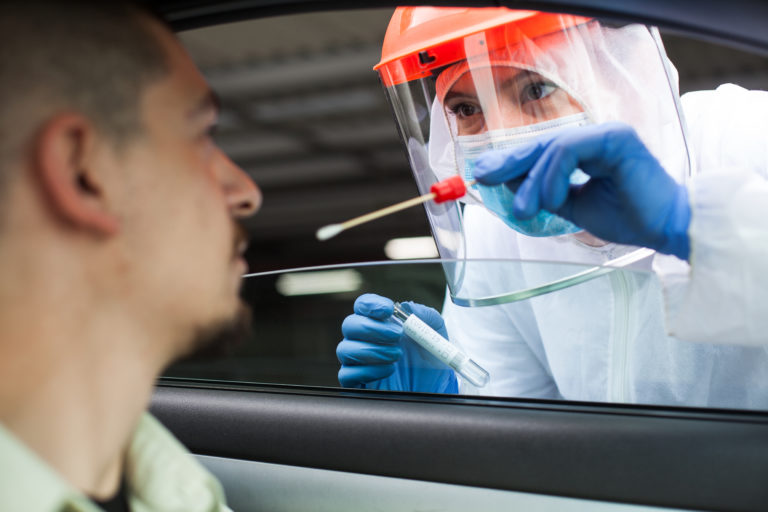
Your personal information will be protected and will not be shared with immigration agencies. Get tested and protect your family.
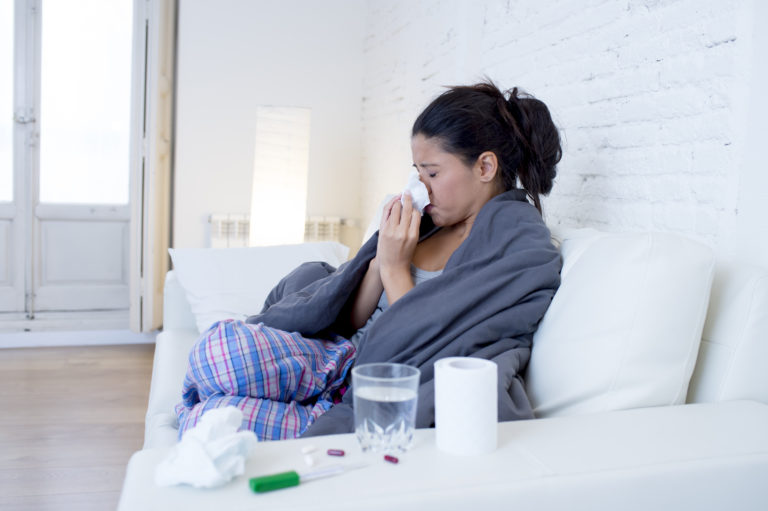
The coronavirus has many symptoms. You may have wondered whether or not you are infected, and you may not know what to do about it. Find out what to look out for and who to turn to if you’re not feeling well.